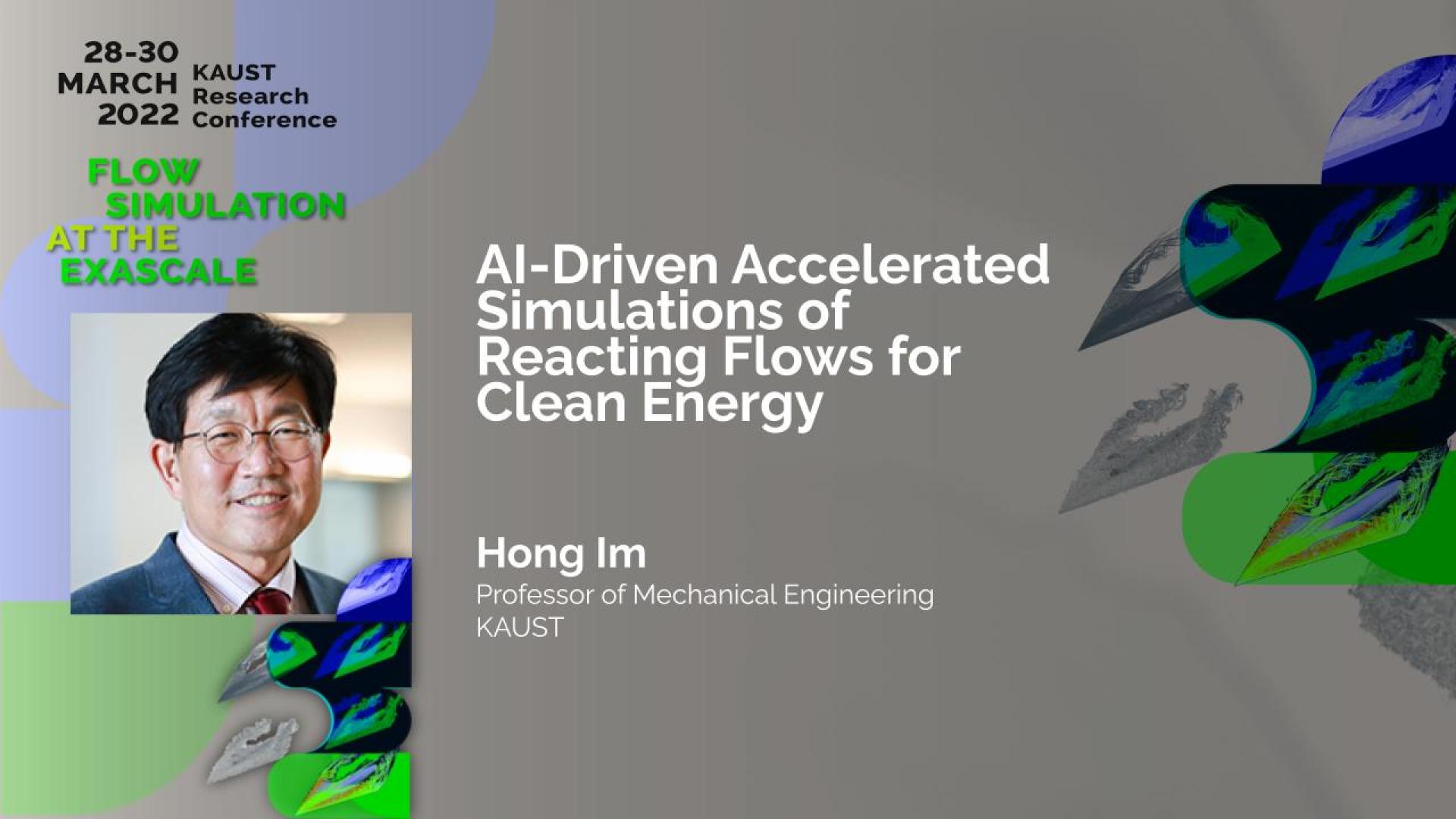Abstract
High fidelity simulations of reacting flows involves a large number of solution variables and chemical reactions at vastly different spatial and time scales, making it one of the most extreme computational challenge. This work aims to achieve the goal of accelerated computing in twofold. First, the chemistry computations are performed on modern GPUs by replacing the conventional Arrhenius rate equations with the matrix-based formulation without introducing any approximations. Then the GPU-optimized linear algebra library, cuBLAS, is used to perform the matrix algebra and calculate the species source terms. In comparison to Cantera, the matrix-based approach results in up to three orders of magnitude faster source term computation and 3.5x reduced time-to-solution of high-fidelity direct numerical simulations (DNS) of reacting flows. Unlike the artificial/deep neural networks (rely on training data for predictions), the present matrix-based formulation solves the exact rate equations making it a general framework for any flow/flame configuration and fuel-air mixtures. Secondly, the complex mathematical systems are reduced by an automated mathematical framework based on computational singular perturbation and principal component analysis in order to reduce the dimensionality and dynamic range of the time scales. An artificial neural network algorithm is also employed as an efficient surrogates of the local projection basis. The feasibility of the approach is tested in canonical model problems of reacting systems.
Brief Biography
Hong G. Im received his B.S. and M.S. in from Seoul National University, and Ph.D. from Princeton University. After postdoctoral researcher appointments at the Center for Turbulence Research, Stanford University, and at the Combustion Research Facility, Sandia National Laboratories, he held assistant/associate/full professor positions at the University of Michigan. He joined KAUST in 2013 as a Professor of Mechanical Engineering. He is a recipient of the NSF CAREER Award and SAE Ralph R. Teetor Educational Award, and has been inducted as an International Member of the National Academy of Engineering of Korea, a Fellow of the Combustion Institute and American Society of Mechanical Engineers (ASME) and an Associate Fellow of American Institute of Aeronautics and Astronautics (AIAA). He has also served as an Associate Editor for the Proceedings of the Combustion Institute, and currently on the Editorial Board for Energy and AI. Professor Im’s research and teaching interests are primarily fundamental and practical aspects of combustion and power generation devices using high-fidelity computational modeling. Current research activities include direct numerical simulation of turbulent combustion at extreme conditions, large eddy simulations of turbulent flames at high pressure, combustion of hydrogen and e-fuels, spray and combustion modeling in advanced internal combustion engines, advanced models for pollutant formation, and plasma-assisted combustion.
